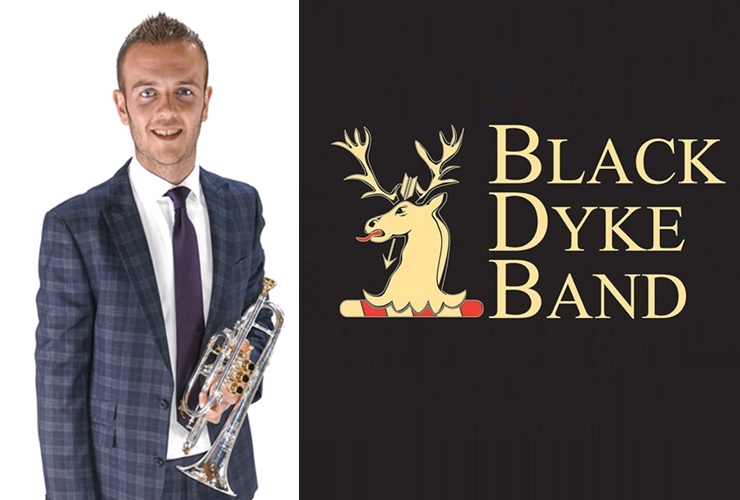
The principal cornet seat at Black Dyke is the most prestigious in the banding world. It is also the one that comes with the greatest amount of expectation and scrutiny.
Fewer than 30 players have officially occupied the ‘end-chair’ in the 170-year history of the Queensbury ensemble – from the first, William Rushworth around 1860, to the current incumbent, Richard Marshall, whose distinguished 20-year tenure will come to an end in December.
For many it has marked the apex of their banding careers, for others, a stepping stone to even greater musical recognition. Some have held it briefly, others much, much longer, whilst a few have returned to take possession of it for a second, third or even fourth time.
Undiminishable lustre
It is a personal CV entry that retains a hallmark of undiminishable lustre – instantly recognised and respected by ‘Pondashers’ as well as rivals across the banding globe. Black Dyke eras may pass, contest successes ebb and flow, but the prestige of being the principal cornet of the most famous brass band in the world retains a remarkable cache.
Little wonder then that one former holder of the role told 4BR: “If the opportunity ever arises, then you can’t turn it down. It may never come again.”
Little wonder then that one former holder of the role told 4BR: “If the opportunity ever arises, then you can’t turn it down. It may never come again.”
It perhaps also explains why Tom Hutchinson, the outstanding cornet player of his generation, and an integral cog in the lasting success of the Cory Band for the past decade and a half, will uproot himself from South Wales and return to Yorkshire to take on the role.
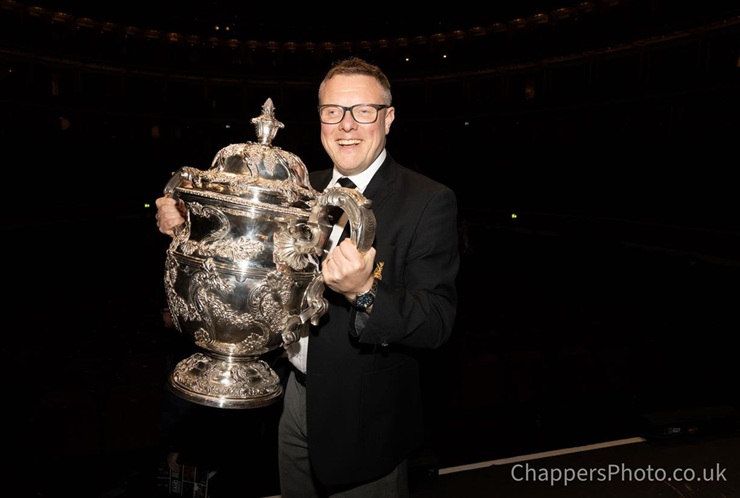
Footsteps
In doing so he follows in the musical footsteps of many of the finest cornet players in banding history – including, fittingly, his own teacher in Richard Marshall (above).
All went on to make their mark in their unique way – and not simply by etching their name into one of the old wooden stands that can now be found in the original Black Dyke rehearsal room upstairs in their iconic headquarters (below).
Those signatures of time and place have been enhanced by equally indelible performances that have cemented their status in the Queensbury pantheon.
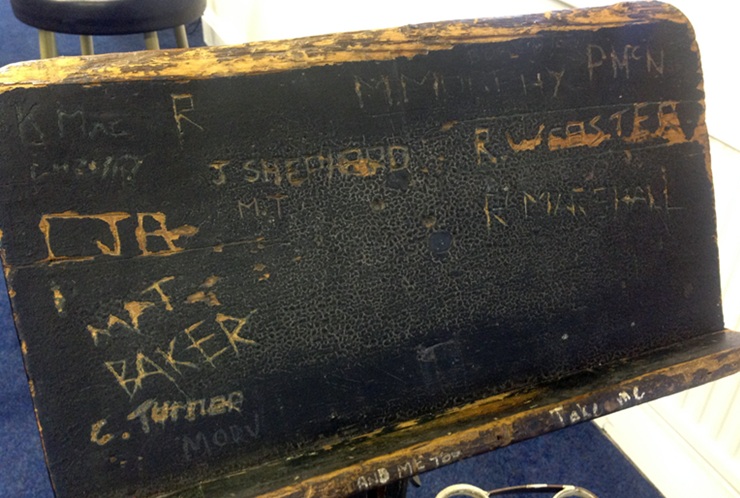
The names of principal cornet players are etched into an old Black Dyke Band music stand
Leadership and artistry
As a result, the band’s success has also been defined by their leadership and individual artistry, of different strengths and weakness, playing traits and character foibles. All though have been blessed with innate talent and the self-belief in their abilities cut from the same performance cloth as the famous black, red and gold stage jackets.
No other band has been able to attract such playing talent.
All though have been blessed with innate talent and the self-belief in their abilities cut from the same performance cloth as the famous black, red and gold stage jackets.
Virtuosos
First came the Victorian virtuosos; William Rushworth followed by Alexander Owen (1880-1888), George Birkinshaw (1889 and again 1892) and John Paley (who claimed the seat three times between 1891 and 1911).
Soon came the flamboyant Ceres Jackson (twice before the First World War), the prodigious Harold Pinches (who completed 12 years over three tenures) and the stalwart loyalist Owen Bottomley, who, in a staggering 45-year association with the band occupied the principal cornet seat on four occasions.
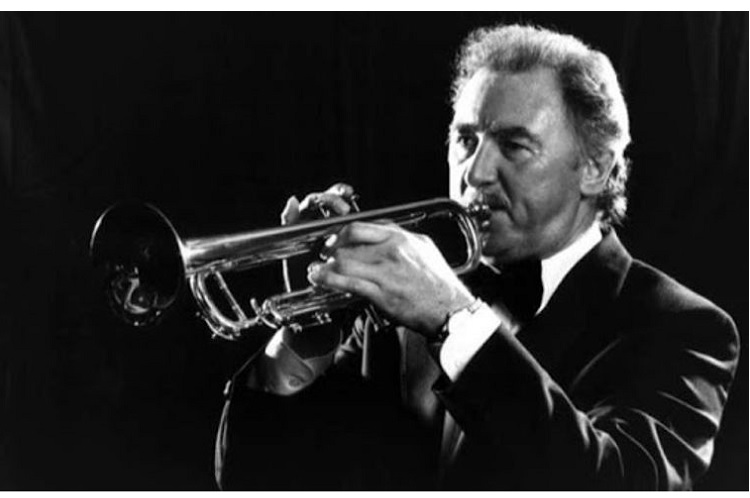
Indelible mark
The post Second World era saw further star names leave their indelible mark - Willie Lang and Maurice Murphy (above), both to become principal trumpet of the London Symphony Orchestra, James Shepherd and Philip McCann, both destined to gain further acclaim away from the contest stage as soloists in their own right.
Finally, as the patrician backing of John Foster & Son started to unravel its connective employment thread, the new breed of star performer – from Roger Webster (below), Ian Porthouse and Matt Baker to Roger Webster again, before Richard Marshall made the role his own in 2005.
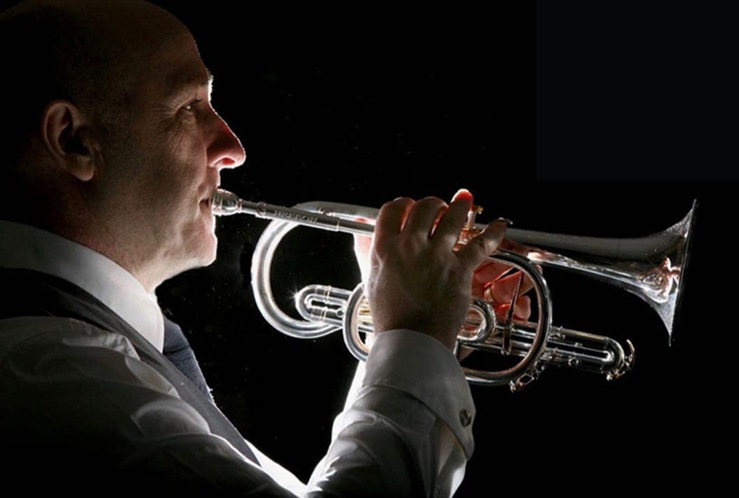
In between came less well known, but no less outstanding performers; Willie Wood, Louis Alison, Billy Rushworth (reportedly the youngest ever principal cornet at 17), Joe Dyson and George Crossland, Harold Jackson, Bernard Bygrave, David Pratt, John Clay, Keith Caldwell and Lee Rigg.
Generational cornet player
Now it falls to Tom Hutchinson, a generational cornet player of complete gifts, to add his name to a lineage like no other.
Long regarded as the natural ‘heir apparent’, he arrives with little to prove, but much to gain from an already outstanding performance legacy (which includes 31 major titles no less).
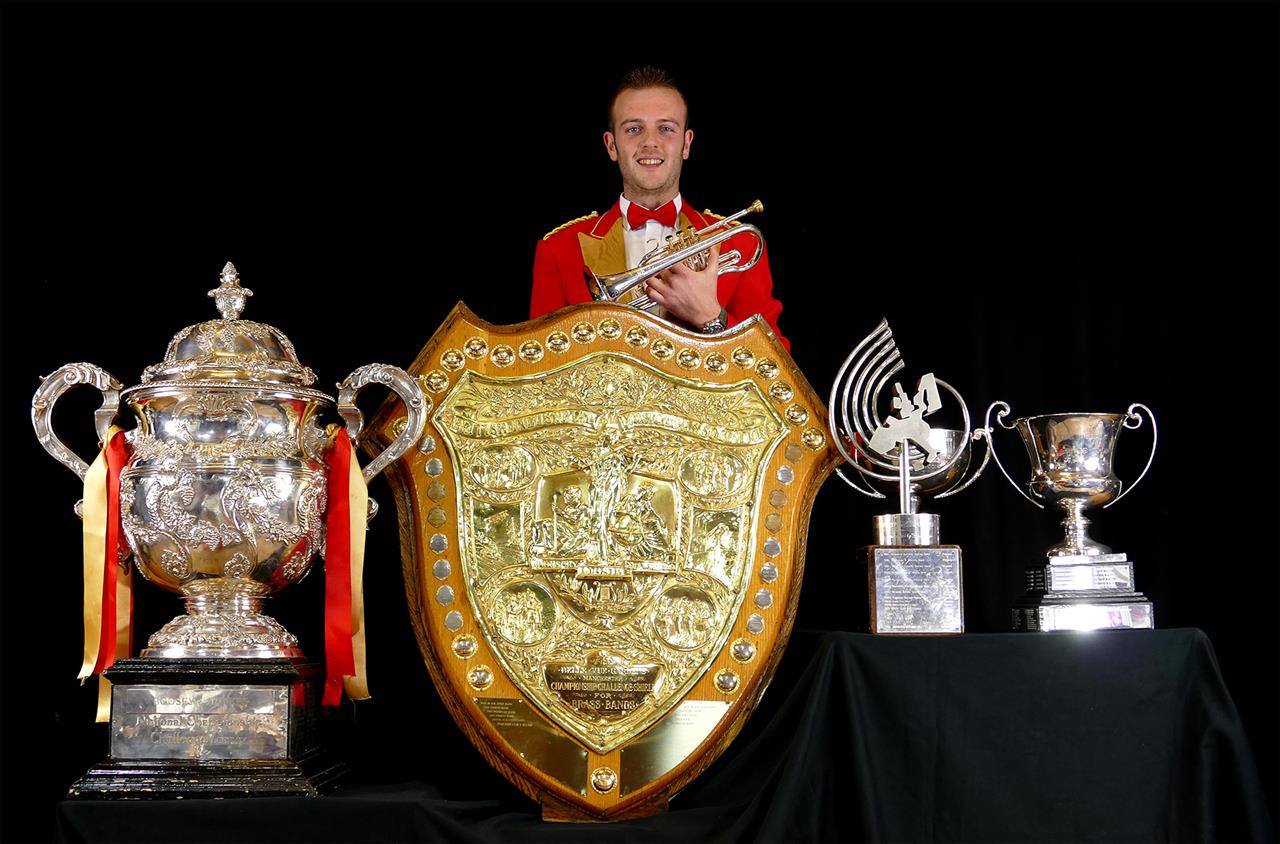
Essential attributes
In the same way Richard Marshall did in following Roger Webster, there is no doubt he will succeed. He certainly shares all the same essential performance attributes in being a model of technical brilliance and musical assuredness – a player of the modern idiom with the ability to embrace the repertoire of the past, a soloist of finesse, a section leader of excellence.
It is a DNA he shares with his most celebrated predecessors, although perhaps not with quite the same ‘brassneck’ cockiness of John Paley.
Messiah
Booked to play the trumpet part in ‘The Messiah’, he arrived at a rehearsal in a flamboyant broad brimmed hat and black cloak. A rather bemused female organiser approached him and asked, “Are you for ‘The Messiah’”?
“Madam,” Paley retorted. “I am the Messiah”.
A rather bemused female organiser approach him and asked, “Are you for ‘The Messiah’”? “Madam,” Paley retorted. “I am the Messiah”.
Any bloody thing
Ceres Jackson was no shrinking violet either. Asked in a patronising manner by Sir Thomas Beecham if he ‘thought’ he could play the demanding trumpet part in Bach’s ‘D Minor Mass’, Jackson simply replied; “Can you conduct it?”
“Yes. I think so”, said Beecham, believing he had put Jackson in his place. “Good,” came the barbed reply. “Because I can play any bloody thing you can conduct.”
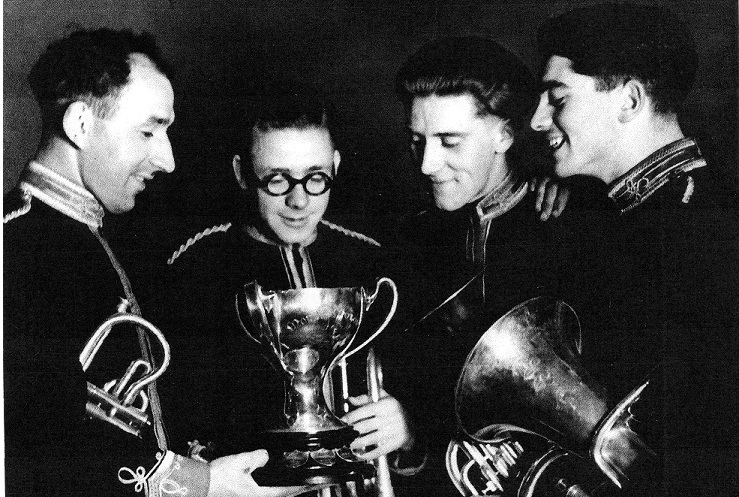
Wille Lang (left) knew exactly what was required on him when he joined the band
Self belief
That type of ‘inner self-belief’ will certainly hold a very personable player in fine stead under the severe contesting pressures that will surely accompany his new role (although he has shown he is more than used to that with Cory), helping him both on and off stage in impressing those wishing to offer him further performance, teaching and solo tour opportunities. Being principal cornet of Black Dyke certainly opens doors.
The RNCM Festival and Yorkshire Championships next year are sure to be a melting pot of intrigue and expectation.
First though comes the scrutiny – from friendly concert going ‘Pondashers’ to the more severe forensic examiners of adjudicators, press and rival supporters. The RNCM Festival and Yorkshire Championships next year are sure to be a melting pot of intrigue and expectation.
Down to work
However, as even the great Willie Lang admitted, once he got the nod to take the Queensbury chair, he quickly knew what was needed of himself in the role.
“I didn’t like to let myself down, or the band, so I took it very seriously and got down to work. I practiced religiously to make sure I could do what I was supposed to do.”
There is little doubt he will do just that, and more.
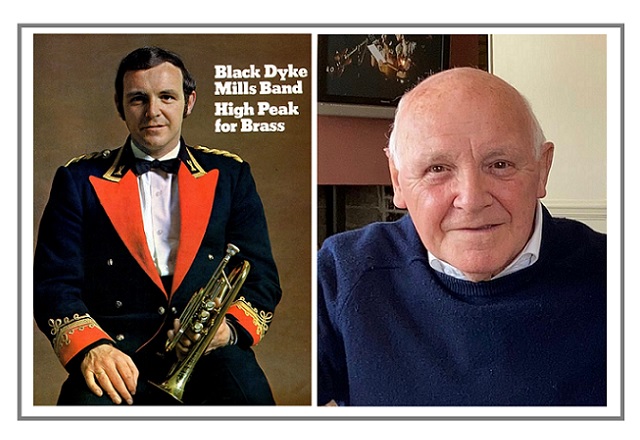
Memorable legacy
The result is likely to prove memorable, although with a change of instrument manufacturer (it is understood he will now move from Besson to Oldroyd) the spotlight will have an additional focus of attention.
And whilst the concert schedule will be busy, Black Dyke would certainly offer the chance to release another long overdue solo CD.
For the new principal cornet of Black Dyke leaving that type of legacy will do very nicely indeed.
You never know, it could well become as iconic as that of James Shepherd (above), Besson International cornet gripped in his left hand, imperious in his contest uniform staring out at you from the cover of the 1969 ‘High Peak’ album – his playing of ‘Pandora’ leaving an eternal imprint of his brilliance on your mind.
For the new principal cornet of Black Dyke, leaving that type of legacy will do very nicely indeed.
Iwan Fox













